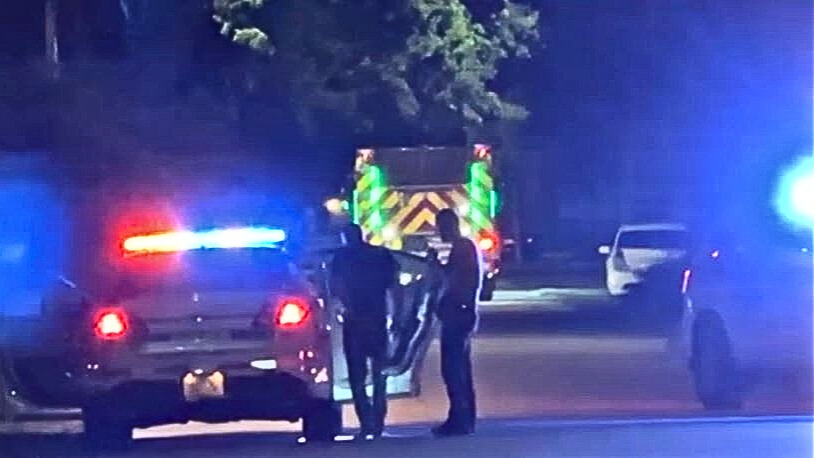The search continued Tuesday for the crew of a cargo ship believed to have sank near the Bahamas during Hurricane Joaquin, as a cruise ship came across debris possibly linked to the vessel.
The El Faro carried a crew of 33 when it sank in the Atlantic after losing engine power amid Hurricane Joaquin's 50-foot waves and 140 mph winds. One body has been sighted in the debris area, but the search continues for survivors.
A spokesman for Carnival Cruise Lines said the Carnival Conquest came across debris and reported it to the Coast Guard, but said they're unaware if the debris was confirmed to be from the El Faro.
A team from the National Transportation Safety Board in Washington was on its way to Jacksonville on Tuesday morning to study other pieces of the El Faro debris, conduct interviews, and look at documents to find out what went wrong and how to prevent such incidents in the future.
"It's just a tragic, tragic situation," NTSB Vice Chairman Bella Dinh-Zarr told reporters before departing Washington. Asked whether she was surprised no survivors have yet been found, she said: "We have survival factors as a major part of our investigation."
Survival suits are designed to help seafarers float and stay warm. But even at a water temperature of 85 degrees, hypothermia can set in quickly, Coast Guard Capt. Mark Fedor said. He noted that the hurricane had winds of about 140 mph and waves topping 50 feet.
"These are trained mariners. They know how to abandon ship," Fedor said. But "those are challenging conditions to survive."
Local
The ship, carrying cars and other products, had 28 crew members from the U.S. and five from Poland. One of the crew members is Mike Holland, of Wilton Manors.
Coast Guard and Navy planes, helicopters, cutters and tugboats searched across a 300-square-mile expanse of Atlantic Ocean near Crooked Island in the Bahamas, where the ship was last heard from while on its way from Jacksonville, Florida, to Puerto Rico.
A heavily damaged lifeboat from the El Faro was discovered, with no one aboard, Fedor said. Also spotted were an oil sheen, cargo containers, a partly submerged life raft — the ship carried five rafts, each capable of holding 17 people — life jackets and life rings, authorities said.
The ship's owners said they're working to figure out what caused the ship to sink.
"We don't have all the answers, I'm sorry for that. I wish we did," Anthony Chiarello, president and CEO of ship owner Tote Inc., told reporters. "But we will find out what happened."
The 41-year-old El Faro was scheduled to be retired from Caribbean duty and retrofitted in the coming months for service between the West Coast and Alaska, said Phil Greene, another Tote executive.
The El Faro and its equally aged sister vessel were being replaced on the Jacksonville-to-Puerto Rico run by two brand-new ships capable of carrying much more cargo and emitting less pollution.
When the El Faro left Jacksonville on Sept. 29, the five Polish workers came along with 28 U.S. crew members to do some prepatory work in the engine room, according to Greene. He gave no details on the nature of their work.
But "I don't believe based on the work they were doing that they would have had anything to do with what affected the propulsion," said Greene, a retired Navy admiral.
The El Faro had no history of engine failure, Greene said, and the company said the vessel was modernized in 1992 and 2006. Company records show it underwent its last annual Coast Guard inspection in March.
The American Bureau of Shipping, a nonprofit organization that sets safety and other standards for ships, did full hull and machinery inspections in February with no red flags, the company said.
F. John Nicoll, a retired captain who spent years piloting the run to Puerto Rico, said he doubts the age of the El Faro was a factor, noting that there are many older ships plying U.S. waters without incident.
He predicted the NTSB will look into whether company pressure to deliver the cargo on time despite the menacing weather played a role in the tragedy _ something Tote executives have denied.
"Time and money are an important thing" in the shipping industry, Nicoll said. He said there should be emails and other messages between the captain and the company to help answer the question.
Tote executives said the captain, Michael Davidson, planned a heading that would have enabled the El Faro to bypass Joaquin if the ship hadn't lost power. That left it vulnerable to the storm's 140 mph winds and battering waves of more than 50 feet.
They said Davidson was in regular communication before the storm with the company, which can override a captain's decisions.
Davidson attended the Maine Maritime Academy and has a home in Windham, Maine.
"He was a very squared-away sailor, very meticulous with details, very prudent, which is important when you're working on the water. He took his job seriously," said Nick Mavadones, a friend since childhood and general manager of Casco Bay Lines, where he and Davidson worked together.
Still, seafarers who have long experience in the Caribbean say its weather can be treacherous.
"It can go from calm, in a matter of five or six hours, to hell," said Angel Ortiz, who retired as a merchant mariner after 39 years.



